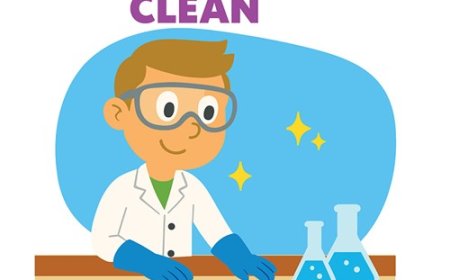What is Physical Science for Students Explained
Learn what physical science is why it is important and how it connects to everyday life with clear explanations fun facts vocabulary and an interactive quiz
🌟 Introduction
Physical science is the study of the non-living world around us. It focuses on matter (everything that has mass and takes up space) and energy (the ability to do work or cause change). Physical science is divided into two main branches: physics (the study of motion, forces, and energy) and chemistry (the study of substances and how they change). Earth science and space science are also often included because they rely on the principles of physics and chemistry.
You interact with physical science every single day. When you flip on a light switch, ride a bike, boil water, or look at the stars, you are experiencing physical science in action. It helps explain how the universe works on the smallest scale (atoms) and the largest scale (galaxies).
🔍 Why is Physical Science Important?
Physical science is important because it helps us understand the rules of nature. Without it, we would not know why things move, how heat transfers, or why materials behave the way they do. Here are some key reasons:
-
In daily life: It explains why ice melts, why sound travels, and why magnets stick to your refrigerator.
-
In technology: Engineers use physical science to design cars, airplanes, smartphones, and rockets.
-
In health and medicine: Doctors rely on chemistry to create medicines and physics for X-rays, MRI scans, and radiation treatments.
-
In the environment: Physical science helps us understand energy use, pollution, and renewable resources.
-
In space: It explains how planets orbit, how rockets launch, and how telescopes capture light from distant galaxies.
🧪 Examples of Physical Science in Action
-
Cooking: Heating food involves heat transfer, boiling water, and sometimes chemical reactions.
-
Sports: When a soccer ball is kicked, physics explains the force, speed, and direction.
-
Weather: Meteorologists use physics and chemistry to predict storms and track climate patterns.
-
Transportation: Cars and airplanes rely on forces, motion, and fuel reactions to work.
-
Space exploration: Rockets use physics and chemistry to break free of Earth's gravity and explore space.
✨ Fun Facts
-
The word physics comes from the Greek word meaning "nature."
-
Chemistry is sometimes called the central science because it connects physics, biology, and earth science.
-
Without physical science, we would not have electricity, computers, or space travel.
📌 Key Takeaways
-
Physical science studies matter and energy in the non-living world.
-
Its two main branches are physics and chemistry, but it also connects to earth and space science.
-
Physical science explains everyday phenomena and powers technology, medicine, and exploration.
🐾 Kid-Friendly Summary
Physical science is like the rulebook for how the world works. It tells us why things move, how energy changes, and how substances react. From cooking in the kitchen to rockets blasting into space, physical science is everywhere.
📚 Vocabulary Words
-
Matter - Anything that has mass and takes up space
-
Energy - The ability to do work or cause change
-
Physics - The study of motion, forces, and energy
-
Chemistry - The study of substances and how they change
-
Scientific Method - A process used by scientists to test questions and ideas
-
Experiment - A test designed to explore or prove a scientific idea
-
Observation - Using the senses to gather information about the world
-
Technology - The use of science to create tools and solve problems
🧠 Interactive Quiz
Test your knowledge about physical science with these questions.
-
What does physical science mainly study?
- A. Plants and animals
- B. Matter and energy
- C. Ancient history
-
Which of the following is a branch of physical science?
- A. Chemistry
- B. Biology
- C. Literature
-
True or False: Physical science only studies things in outer space.
-
Which everyday activity uses physical science?
- A. Cooking food
- B. Writing a poem
- C. Singing a song
-
What tool do scientists use to answer questions and test ideas?
- A. The Scientific Method
- B. The Periodic Table
- C. A Dictionary




















































